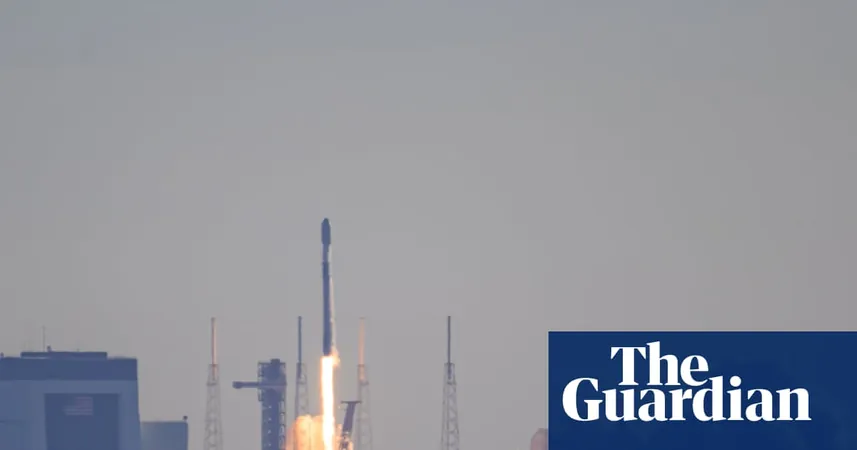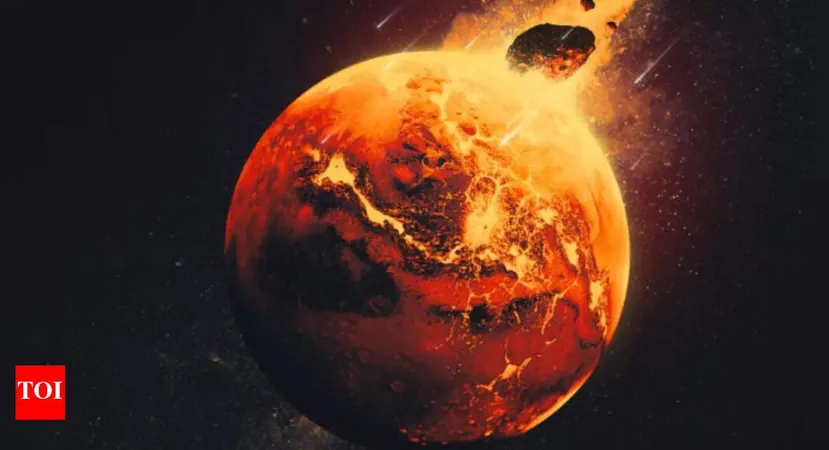
Urgent Action Needed: Scientists Warn of Air Pollution Crisis from Space Launches
2025-08-22
Author: Wei
The Growing Problem of Space Pollution
In a shocking call to action, scientists are urging the global community to tackle the escalating air pollution generated by the booming space industry. A study led by Professor Eloise Marais at University College London (UCL) highlights alarming trends as we enter 2024.
Rocket Launches on the Rise
Since tracking space activities in 2020, Marais and her team have documented a staggering 259 rocket launches projected for 2024 and 223 for 2023, with more than 153,000 tonnes of fuel consumed. This meteoric rise in launches is contributing to a significant uptick in atmospheric pollutants.
Uncharted Territories of Pollution
"We're in uncharted territory," Marais explained. "Humans have never released such high levels of pollutants into the upper layers of the atmosphere. If we don’t take action, the consequences could be dire for our planet."
The Impact of Mega-Constellations
Particularly concerning is the impact of mega-constellation satellite launches like Starlink and OneWeb, which have tripled emissions of climate-altering soot and carbon dioxide. While the total emissions from rockets are still lower than those from other industries, these particles linger in the upper atmosphere far longer, exacerbating their warming effects.
Future Challenges Ahead
Marais warns that propellant usage for these mega-constellations now exceeds that of all other missions combined. Future launches, including Amazon’s Kuiper constellation, could worsen matters as they will use solid rocket fuel, releasing ozone-damaging chlorine compounds.
A Threat to Ozone Recovery Efforts
Dr. Connor Barker from UCL stated, "With many more mega-constellations slated for the coming decades, we risk undermining the progress made by the Montreal Protocol in repairing the ozone layer." The enormous increase in objects in orbit—from a few hundred annually in the 1960s to thousands today—poses a formidable challenge.
Eyes on the Sky: The Visible Consequences
As stargazers admired the Perseid meteors this month, many couldn’t help but notice the increasing number of satellites dotting the night sky—small bright lights traversing from horizon to horizon, a constant reminder of our growing space presence.
Navigating International Law to Enforce Action
According to Professor Stuart Martin, chair of trustees at the UK National Space Centre, existing international laws complicate responsibility and cleanup efforts. "The country that launches an object owns it, and only the laws of that country apply to its operations in space," he remarked, emphasizing the need for a comprehensive global framework to address these urgent environmental concerns.

 Brasil (PT)
Brasil (PT)
 Canada (EN)
Canada (EN)
 Chile (ES)
Chile (ES)
 Česko (CS)
Česko (CS)
 대한민국 (KO)
대한민국 (KO)
 España (ES)
España (ES)
 France (FR)
France (FR)
 Hong Kong (EN)
Hong Kong (EN)
 Italia (IT)
Italia (IT)
 日本 (JA)
日本 (JA)
 Magyarország (HU)
Magyarország (HU)
 Norge (NO)
Norge (NO)
 Polska (PL)
Polska (PL)
 Schweiz (DE)
Schweiz (DE)
 Singapore (EN)
Singapore (EN)
 Sverige (SV)
Sverige (SV)
 Suomi (FI)
Suomi (FI)
 Türkiye (TR)
Türkiye (TR)
 الإمارات العربية المتحدة (AR)
الإمارات العربية المتحدة (AR)